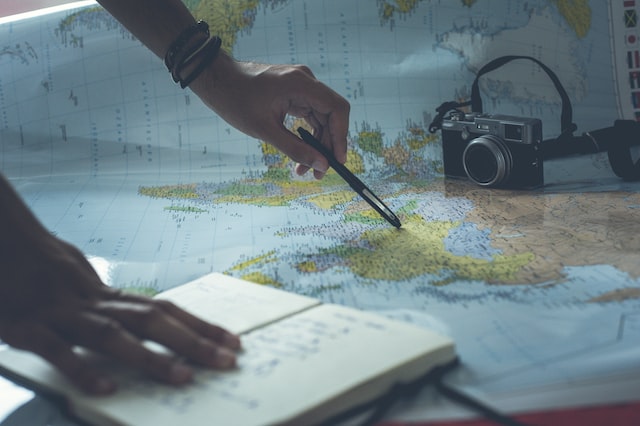Tipping is an important part of travelling, especially when going out for food. This tipping culture is deeply rooted in America, where servers expect a 15% gratuity if service is good. In Asia and other countries, however, tipping is completely optional — even though it seems strange at first. If you decide to leave some extra cash for your waiter, restaurant owner, porter or hotel staff, then you’ll be able to enjoy your stay to the fullest. Let’s see below the important issues you have to consider when travelling.
What are the average prices?
A lot of travellers don’t know what their budget should be and just want to go on a trip without checking the price. It will lead them to be disappointed with the final bill. So, before booking, you should check what kind of accommodation (hotels, hostels, etc.) and transportation (bus tickets, flights, etc.) you can afford. Also, it would be helpful to research the destination itself — what do its attractions include? And finally, make sure that you’re aware of the exchange rate, because this may affect your travel costs.
What are the best tips for saving money?
Travelling is expensive so you shouldn’t spend all your savings on one trip. You can save big by considering the following tips:
1) Always book early online as last-minute deals often come around.
2) Use public transport instead of taxis, buses and trains.
3) Stay away from expensive restaurants or bars.
4) Avoid expensive tours and activities.
5) Enjoy free things like museums, parks and public beaches.
6) Check out local markets and bargain hunting.
How much does everything cost?
As we mentioned above, you should always plan. But, how many people take into account that they need to pay for meals, drinks, souvenirs, entrance fees and more every time they visit a new city/country? The answer is not many! That’s why if you want to save money whilst exploring new places, you should prepare a list of expenses before leaving. For example, if you’re visiting Paris, Rome, London or New York, don’t forget to add up meal costs, attraction entry fees, shopping tips, and nightlife options… The same goes for any other place you’d like to visit during your trip. To make things easier, you can use apps such as TripAdvisor, Booking or Skyscanner to find great deals or discounts on accommodations, transportation, sightseeing, dining…
Do I need to tip?
If you’ve chosen to dine at a nice restaurant or café, then yes, you should leave a small amount of change after completing your order. However, you won’t usually need to tip a barber, hairdresser, massage therapist, personal trainer, tour guide or car driver unless otherwise stated in the contract.

Is tipping expected?
It depends on which country you’re travelling to, but most Asian destinations ask guests to leave a tip for the staff. Even if the hotel doesn’t say anything, they probably expect some sort of tip. A 10–15% service charge is quite usual. If you feel uncomfortable about giving tips, you can always leave your tip later.
Should I tip everyone?
No, you only need to give a tip to those who provide services that are particularly valuable to you, such as drivers, tour guides, concierges and front desk clerks.
Are there hidden charges when paying?
Yes, there are a few extra fees you might encounter while planning your trip. These can range from airport departure taxes to mandatory hot spot purchases. Be sure to avoid them whenever possible.
What currency should I bring?
You’ll need to have several different currencies to cover your stay, including U.S. dollars, euros, British pounds, Australian dollars, Canadian dollars and Japanese yen. Make sure you also have enough cash for any emergencies, including lost cards or unexpected changes in prices.
In conclusion, planning a cheap vacation isn’t too difficult with these simple steps. All it takes is some research and preparation. Good luck with your next adventure!

